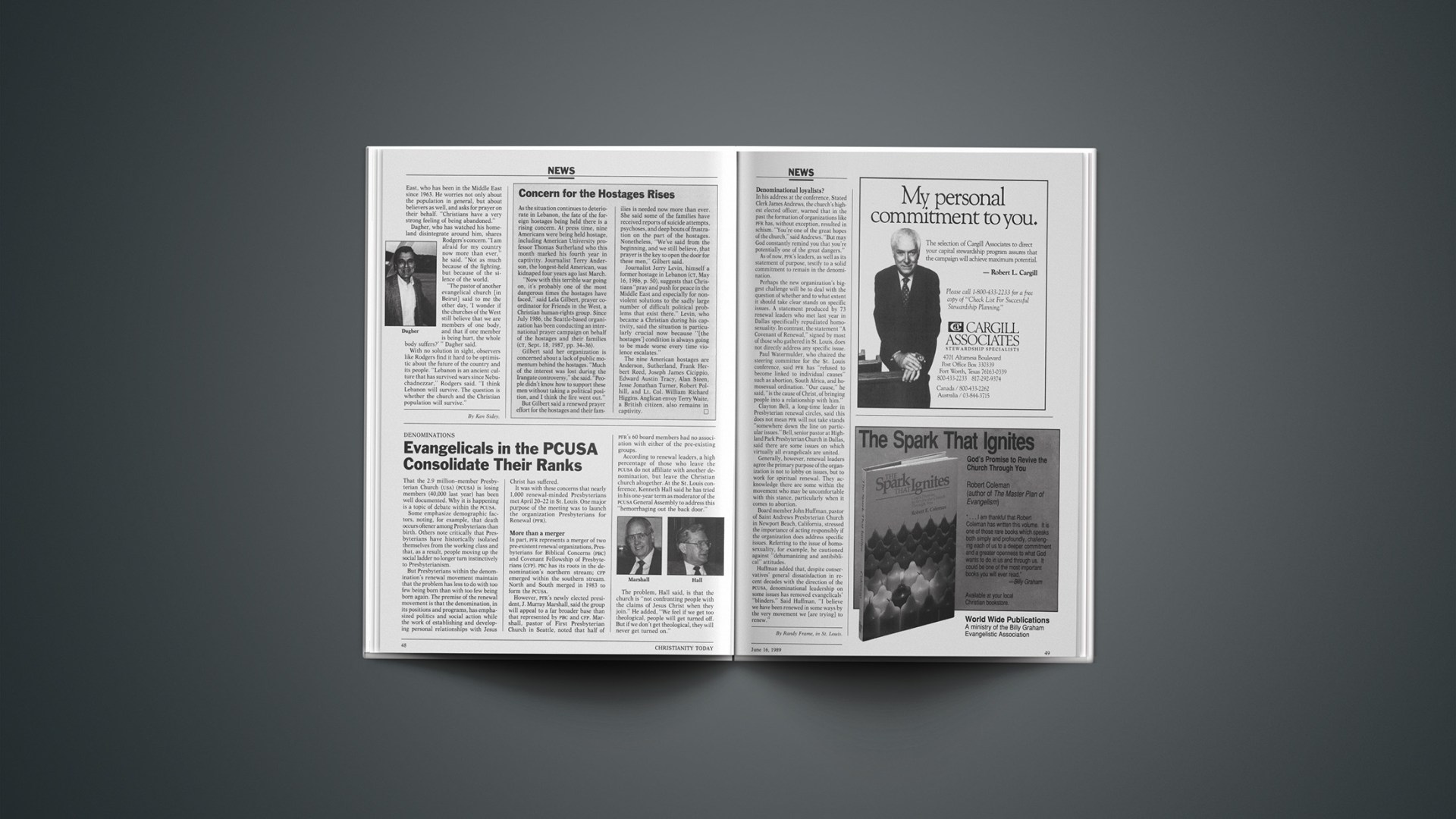The massive number of dissidents being allowed to leave the Soviet Union has caused scrambling among American government officials and relief agencies to establish new immigration and refugee policies. Likewise, the unexpectedly high number of Soviet evangelicals among the émigrés is presenting a host of new challenges for the American church.
Richard Schifter, assistant secretary of state for human rights, projects that as many as 54,000 Jews and 10,000 Pentecostals will be among those receiving exit visas from the Soviets this year. The number of Soviet Jews leaving the USSR began climbing late last year and appears headed toward exceeding all previous records.
Evangelicals Leaving
The number of émigrés who are evangelicals, particularly Pentecostals, took many by surprise because between 1960 and 1987, fewer than 150 Christians were permitted to leave the Soviet Union. In the first four months of this year alone, nearly 3,000 have left.
“Ironically, the increased numbers of Christian émigrés has raised [several] issues for Western Christians that are very pressing,” said Kent Hill, executive director of the Institute on Religion and Democracy (IRD).
A major issue has been securing refugee status from the U.S. Immigration and Naturalization Service (INS) for the Christian émigrés. Refugee status is granted to persons who have a “well-founded fear of persecution.” Initially, 169 Christians in refugee-processing centers in Rome were denied refugee status, although the INS overturned 145 of those denials after intervention by American evangelicals led by World Relief. At press time, an additional 11 reconsiderations were pending.
“The INS didn’t know who these people were,” said Serge Duss, coordinator of World Relief’s Soviet Refugee Program. “They didn’t give the Christians a chance to express their personal histories of persecution.” He added that many of the Christians carried from the Soviet Union a fear of talking to government officials, while others did not want to indulge in the “sin of pride” by discussing their trials.
Officials of World Relief and the National Association of Evangelicals (NAE) have conducted a flurry of meetings with representatives of Congress, the INS, and the Justice Department in order to educate them about the persecution Soviet Christians have suffered. Testifying before Congress, NAE president John White asserted, “Our brothers and sisters in the faith … have endured generations of harsh persecution because of their religious beliefs.”
At the advice of the evangelicals, the Justice Department invited Soviet Christian expert Michael Rowe of Keston College in England to Rome to brief INS and embassy workers on the Pentecostals and other Soviet evangelicals. Duss said the situation has much improved since then, although he had just received an unconfirmed report that four Estonian Methodist charismatic families had been denied refugee status. The Jewish community reports a continued 28 percent refugee status rejection rate for Soviet Jews.
Too Many Refugees?
In an attempt to address the problem, Rep. Bruce Morrison (D-Conn.) has introduced legislation that would grant “presumptive refugee status” to all Soviet émigrés who can prove they are members of the Jewish or evangelical Christian communities.
However, the flood of Soviet émigrés poses a larger problem for the U.S., which only allows a set number of refugees to enter each year. At an emergency consultation last month, Congress and the Bush administration agreed to raise the quota from 90,000 to 114,000 for this fiscal year, but many say even that will not be high enough. Also, budget constraints have made it difficult to secure government funds for the processing, care and maintenance, and resettlement costs for refugees making their way from Moscow, through Vienna and Rome, to America.
Many religious groups have assumed a large part of that financial responsibility. The Jewish community, for example, is currently paying $150,000 daily to feed and house Soviet Jews awaiting processing in Europe, and that amount is growing, according to Michael Schneider, executive vice-president of the Joint-Jewish Distribution Committee.
Christian groups have also been involved in these efforts, although Hill said they “have not had the kind of well-organized and well-funded émigré support mechanisms that our Jewish friends have maintained.” World Relief, with the cooperation of several other Christian groups, has taken the lead in resettlement of Christian refugees once they reach the U.S.
“The churches, particularly the Pentecostal churches across the country, have been enthusiastic and very supportive about offering sponsorship to Soviet Christians,” Duss said, although he added that World Relief still lacks the funds to place personnel in Vienna to aid with refugee processing.
NAE executive director Billy Melvin said that at this point he believes the evangelical community “is prepared” to handle large numbers of Soviet émigrés, although “how that will play out in the future is anybody’s guess.” Nonetheless, he is optimistic. “This is something that most of us never dreamed we would see in our lifetime.”
By Kim A. Lawton.










